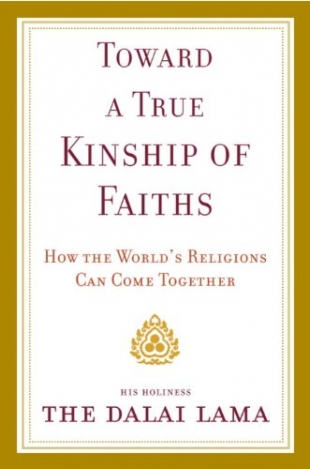His Holiness the Dalai Lama, the spiritual and temporal leader of the Tibetan people and Nobel Peace Prize recipient, is deeply troubled by the rising tide of enmity between the world's religions and the growing polarization between believers and those with no religion. The former is based on the exclusivism of fundamentalists of all stripes and the latter upon a continuing lack of openness and a refusal to accept and respect the pluralism that is an essential aspect of twenty-first century life. Over the years, the Dalai Lama has engaged closely with various religions and come to the conclusion that compassion lies at the heart of all of them. It is the right time for inter-religious harmony to replace conflict, hatred, and misunderstanding. The Dalai Lama makes it clear that hospitality toward other faiths does not mean abandoning or slighting one's own beliefs and perspectives.
Living in India has given the author a keen appreciation for the birth of the four religions which thrive there: Hinduism, Buddhism, Jainism, and Sikhism. The Dalai Lama affirms Jainism for its respect for all forms of life and its ethic of nonkilling. He singles out the service of the poor as one of the commendable practices of Sikhs and is impressed with the quest for peace as one of the chief goals of those of the Bahai faith. And he finds much to admire in Hinduism, including seeing the Divine in diverse forms and the four paths that are explained. The Dalai Lama was very much taken with the Trappist monk Thomas Merton, an early pioneer of Buddhist-Christian dialogue. He has been impressed with the high value placed on social activism by Christians who believe in serving the poor and the vulnerable. He also salutes the work of contemplative practice as demonstrated by Bede Griffiths, John Main, Thomas Keating, and Brother David Steindl Rast. In Judaism, the Dalai Lama honors the strong memory of the past, the resilience of the Jewish people in exile, and the religion's mystical tradition.
Besides its advocacy of complete surrender to Allah, this Tibetan Buddhist monk is fascinated with Islam's emphasis on the spiritual practice of compassion, which he sees as the place where all the world's religions can come together. He describes it as "the natural capacity of the human heart to feel concern for and connection with another being." The Dalai Lama provides a captivating overview of this ethic of selfless service and altruistic action as it works its way through the various world religions. He then closes with a four point program for the promotion of inter-religious harmony and understanding:
1. Dialogue between scholars of religion on the academic level
2. Dialogue between genuine practitioners
3. Meetings between the leaders of the faiths
4. Joint pilgrimages to holy sites.
Hopefully, the outcome of such mutual respect and sharing will be communities working together to stem the tide of religious hatred and conflict, acting as a force for goodness, serving the cause of peace, contributing to the repair of the abused environment, and dealing with the vast inequities of wealth. He concludes:
"Make the vow today that you shall never allow your faith to be used as an instrument of violence. Make the vow today that you may become an instrument of peace, living according to the ethical teachings of compassion in your own religion."
